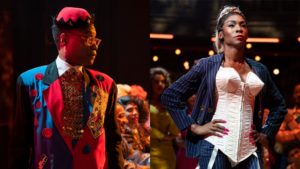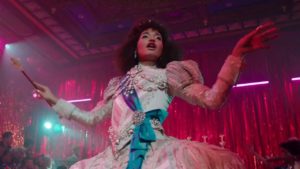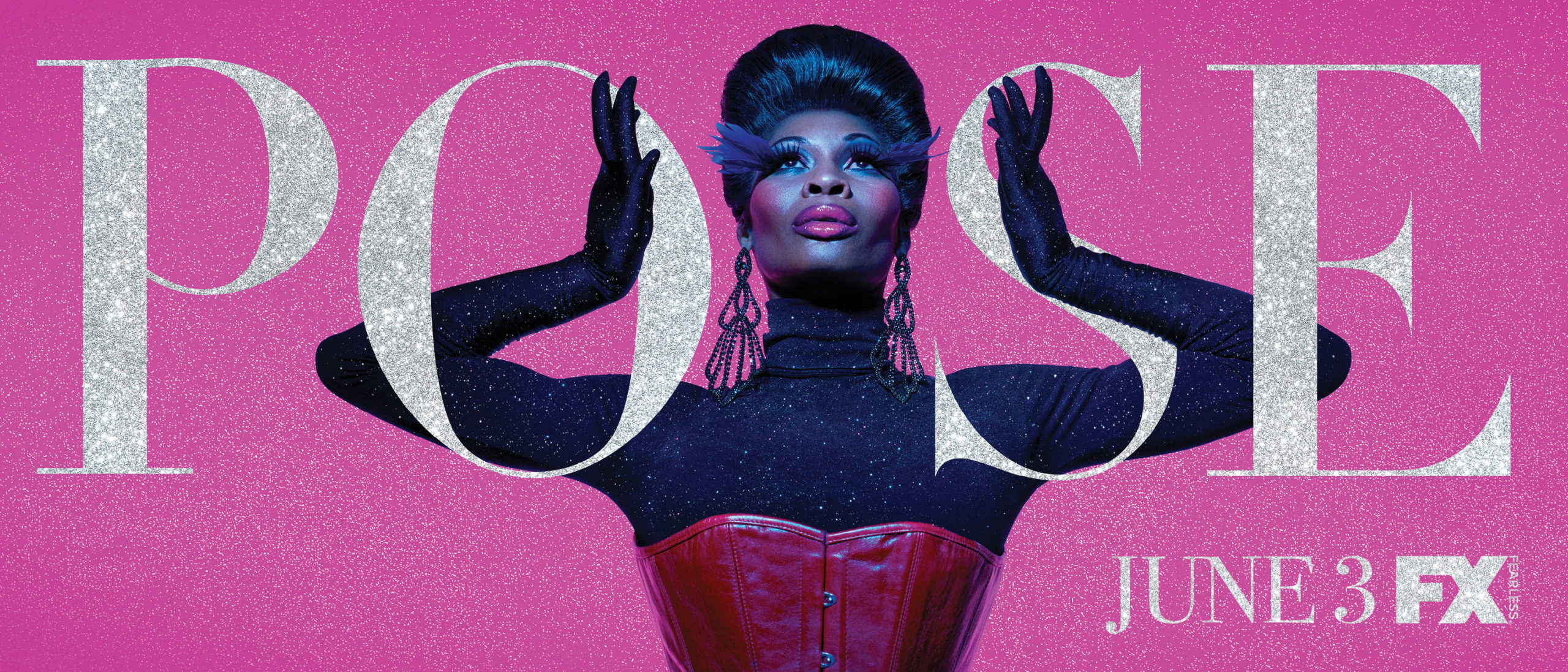“Live, work, POSE!!!”

Netflix recently added Pose by Ryan Murphy to their streaming and I watched the whole first season for the first time last week. While we can all recognize that Ryan Murphy has made a lot of not-so-great work, he certainly got it right with Pose. Netflix recently made a $300 million deal with Murphy to house his work and after Glee, The Prom, and some questionable themes in Scream Queens and The Politician, Pose has solidified Ryan Murphy’s place as King of Queer Representation in Television in my head. Since 2009 with the premiere of Glee, Murphy has been committed diligently to representing queer people in his work. Many of these shows/ movies have shaped the way a mainstream culture views queer people and for the first time, Pose represents the BIPOC Transgender community and Ball culture through the late 80s and the AIDS epidemic in NYC. Documentaries such as Paris is Burning had previously shared insight into this community and Pose builds on this to give us complex and beautiful queer characters in the form of a heartfelt TV show. While the AIDS epidemic is central to this show, the characters live their lives in an effort to leave their mark before they are taken by the deadly virus that targeted the queer community. This show will bring you through the full range of emotions of this period from severe grief and loss to absolute queer joy and the love of found families. There is no lack of celebration through this show regardless of the tragedies that occurred in the devastation of AIDS. Pose shines a light on one of the darkest times for queer people and outlines how community and love can be stronger than hate.

The radiant cast of Pose is, for the most part, amazingly queer. Despite the inclusion of Ryan Murphy’s BFF Evan Peters as Stan Bowes, the cast is comprised of BIPOC queer icons. Billy Porter as Pray Tell (emcee of the Ball scene) brings broadway quality acting and so much heart to the cast of this show. Pray Tell’s character acts as a mentor to so many members of this community as well as a fierce eye for fashion design. The importance of community is emphasized with the inclusion of Houses that act as families for the poor or homeless kids who find themselves apart of Ball culture. The first season of Pose focuses on three Houses; Evangelista, Abundance, and Ferocity. The House of Evangelista is run by Blanca Evangelista (Mj Rodriguez), a newer mother and HIV-positive transgendered woman who wants to make a mark on her children while she still can. Blanca’s character wants her children, the members of her House, to feel as though their lives have value. Blanca helps her children succeed in ways their biological parents never could. Blanca’s mother, Elektra Abundance (Dominique Jackson), mother of the House of Abundance, is focused on winning trophies at the Balls and will push her children away just to win. The House of Ferocity is formed by Elektra’s children, Lulu Ferocity (Hailie Sahar) and Candy Ferocity (Angelica Ross) when they become fed up with Elektra’s tough love, they form their own house. Each member of the ensemble cast of Pose brings unique elements of the Ball scene to life.

The bright, lively, and colorful Ballroom is juxtaposed by scenes that take place in AIDS wards of NYC hospitals. Patients in these wards were often discriminated against by homophobic nurses who refuse to bring food inside the rooms where these patients will spend their final days of life. Many of these patients are said to have died alone and filled with shame as they had nobody there to comfort and support them. Pray Tell is seen throughout the season caring for a dying partner with the knowledge that one day, he very well could be in the same position. Everyone on this Earth exists knowing that one day they will die but for these characters, death and tragedy surround every moment of their lives making it very difficult to live fully. They look after each other and make sure each member of their found families feels loved and important. There is an extreme emphasis on safe-sex practices as well as positive sex talk that diminishes the Catholic Church’s call for abstinence. This positive look into the queer community during such a horrible epidemic highlights the importance of genuine support for BIPOC queer people. Young queer people who watch this show will not only see characters like them feeling loved and supported but will also hopefully take something away from the educational topics that are preached by amazingly sympathetic mentors.

Pose tells stories of queer joy and love in a time of intense hate and sadness. While by the year 2021, these topics and social issues may seem behind us in a way, there is such joy in watching these underrepresented characters live authentically and thrive together during a time where they experienced mostly disrespect from mainstream culture. Pose has been renewed for its third and final season and will be released this May. In the meantime, you can go celebrate queer BIPOC voices with the excellent first two seasons!
Incluvie Score: 5
TV Score: 5
TV Show Review originally published by Allie Posner on Medium

Comments